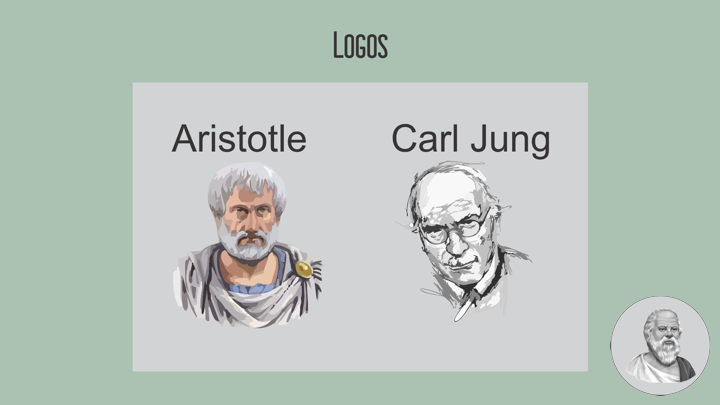——
#LucPaquin #Spirituality #Philosophy #Logos #WorkLifeBalance
——
——
Logos
Logos is a term used in western philosophy, psychology and rhetoric; it connotes an appeal to rational discourse that relies on inductive and deductive reasoning. Aristotle first systemised the usage of the word, making it one of the three principles of rhetoric alongside ethos and pathos. This specific use identifies the word closely to the structure and content of text itself. This specific usage has then been developed through the history of western philosophy and rhetoric.
I put in order, arrange, gather, choose, count, reckon, discern, say, speak. In modern usage, it typically connotes the verbs “Account”, “Measure”, “Reason” or “Discourse”. The word has also been used in different senses along with rhema. Both Plato and Aristotle used the term logos along with rhema to refer to sentences and propositions.
This logos holds always but humans always prove unable to ever understand it, both before hearing it and when they have first heard it. For though all things come to be in accordance with this logos, humans are like the inexperienced when they experience such words and deeds as I set out, distinguishing each in accordance with its nature and saying how it is. But other people fail to notice what they do when awake, just as they forget what they do while asleep.
For Aristotle, logos is something more refined than the capacity to make private feelings public: it enables the human being to perform as no other animal can; it makes it possible for him to perceive and make clear to others through reasoned discourse the difference between what is advantageous and what is harmful, between what is just and what is unjust, and between what is good and what is evil.
Carl Jung contrasted the critical and rational faculties of logos with emotional, non-reason oriented and mythical elements. In Jung’s approach, logos vs eros can be represented as “Science vs Mysticism”, or “Reason vs Imagination” or “Conscious Activity vs The Unconscious”.
Logos is logical appeal, and the term logic is derived from it. It is normally used to describe facts and figures that support the speaker’s topic. Furthermore, logos is credited with appealing to the audience’s sense of logic, with the definition of “Logic” being concerned with the thing as it is known.
Furthermore, one can appeal to this sense of logic in two ways. The first is through inductive reasoning, providing the audience with relevant examples and using them to point back to the overall statement. The second is through deductive enthymeme, providing the audience with general scenarios and then indicating commonalities among them.
Logos is the persuasive technique that aims to convince an audience by using logic and reason. Also called “The Logical Appeal”, logos examples in advertisement include the citation of statistics, facts, charts, and graphs. Ever told someone to “Listen To Reason” during an argument? This is what logos does. The best logos advertisement examples are when a speaker appeals to logic. Statistics, surveys, facts, and historical data can make a product seem like a more reasonable decision. Whether the data is sound or not is another story.
Luc Paquin

